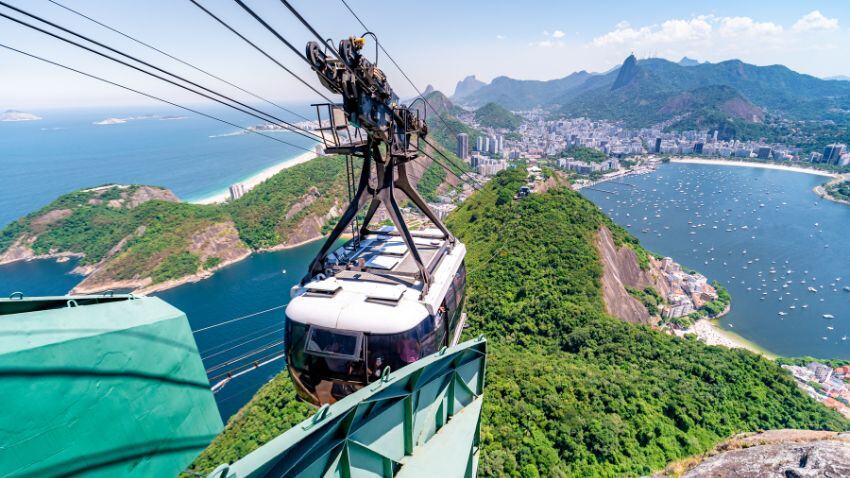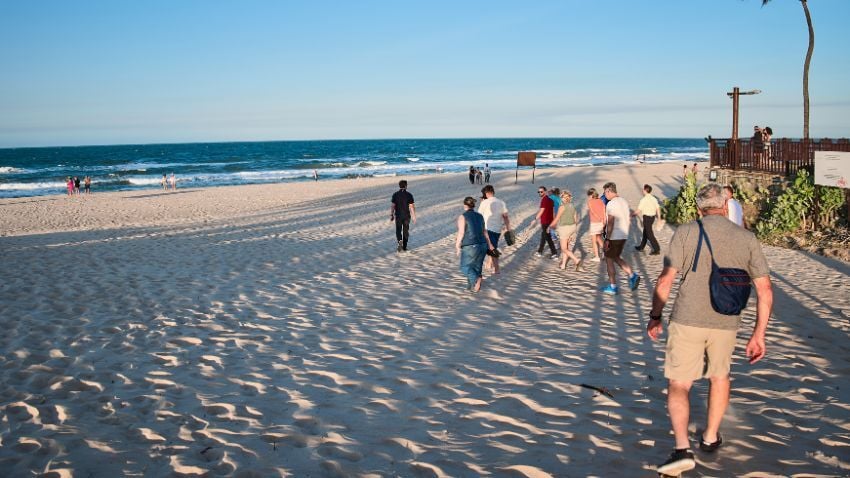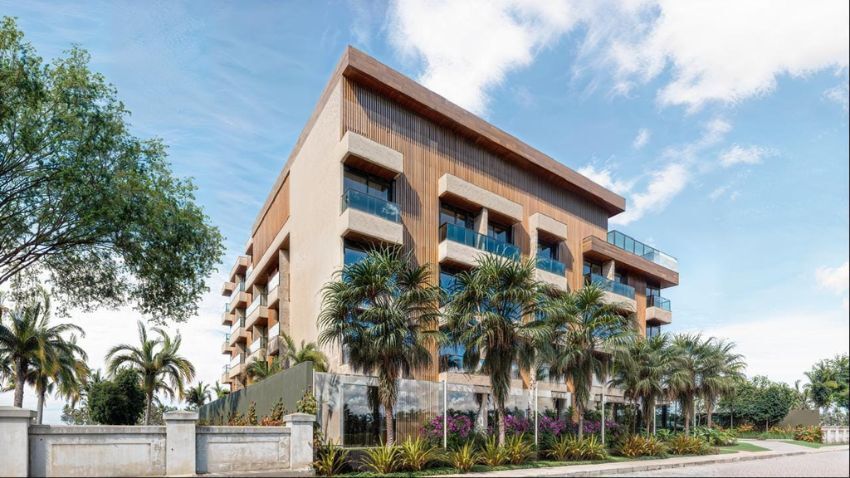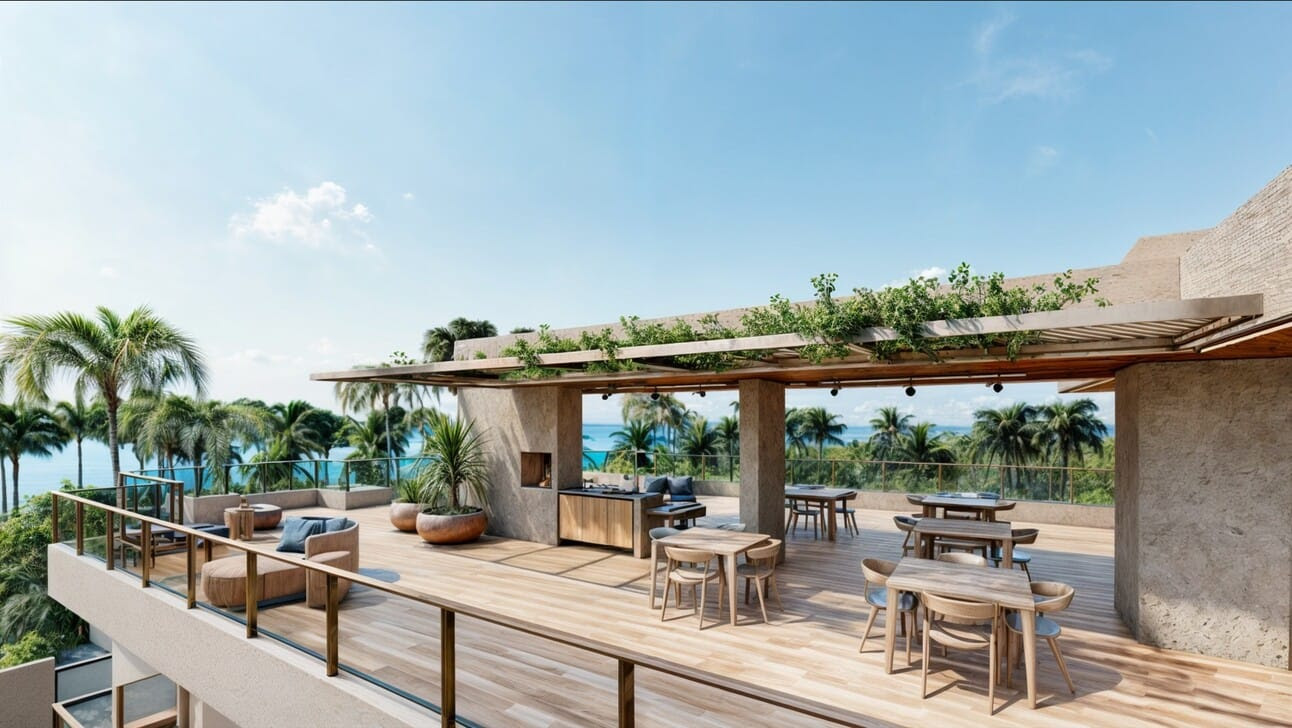Why I Own Real Estate in Multiple Countries...
Over the years, I’ve built a portfolio of real estate across numerous countries - not just as investments but as strategic tools to ensure freedom,...

Brazil is experiencing a massive shift right now, and in just a few days, I’ll be hosting what may be the most comprehensive strategy session I’ve ever hosted publicly.
But before we get there, I want to help you understand some of the larger trends that make Brazil worthy of your investment dollars and even as a formidable Plan-B jurisdiction.
If you’re serious about placing capital offshore or if you’re trying to build wealth outside of your home country’s banking systems, inflated real estate bubbles or corrupt markets, Brazil deserves your full attention.
This issue will break down some of the most compelling macroeconomic reasons that I personally am long on the future of Brazil and have personally already invested in the country, with plans to increase my position significantly.
Whether you’re still exploring your offshore investing options or are already in the Brazilian real estate market and have been watching the value of your assets grow like I have, this edition has something for you.
Before getting into the meat of this newsletter, I want to make it clear that I am not here to pitch dreams or postcard lifestyles: I’m here to help you understand where capital is moving, why it’s moving, and what the people who move early tend to do differently.
Let’s dive in.
If you’re serious about moving your capital offshore, protecting your future, and building a real Plan-B outside of your home country, you need a jurisdiction that is well-positioned to navigate the changes of tomorrow.
You need a country that can feed itself.
Power itself.
Attract and protect wealth.
And most importantly for offshore investors like us, one that offers a clear legal framework for foreigners to own property.
That’s why I’m more bullish on Brazil right now than I’ve ever been.
Brazil is no longer the world’s best-kept secret… It’s just the most overlooked and misunderstood.
Most foreign investors still think of Brazil as some exotic wildcard.
They hear “South America” and immediately assume instability, corruption, or risk.
What they don’t realize is that Brazil is the 9th largest economy in the world.
Bigger than Canada. Bigger than South Korea and just behind Italy in terms of its GDP.
But what really makes Brazil powerful as a Plan-B destination isn’t just the size of its economy… It’s what’s underneath the surface, powering and bulletproofing said economy.
Food and Water Independence
The coming century very well could be defined by resource scarcity… and Brazil holds the trump cards.
Brazil is the #1 global exporter of beef, soybeans, poultry, sugar, corn, orange juice, and coffee.
…and even more important than Brazil’s food independence are its strategic water reserves.
If you haven’t been living under a bridge for the past 5 or 10 years, you have heard the rumblings; water will be the most in-demand essential resource in the decades to come.
In the eyes of greedy politicians and bankers, water will be war-worthy at some point in our lifetimes… and if not our lifetimes, our children’s. Great, right? Moving on…
Brazil has the largest freshwater reserves in the world, accounting for 12% of the planet’s total supply.
… and it doesn’t need to be dug out of the ground, it just needs to be protected.. a far more manageable undertaking.
In a crisis scenario, whether it's a war or a global supply chain breakdown, countries that rely on imported food or water quickly become unstable. Fact.
Brazil won’t just survive under the coming pressure… it will thrive.
Its food systems are local, its exports are vast and diversified, and its access to water gives it a permanent seat at the global table.
As an offshore investor, that means you’re placing your capital in a country that has the ability to sustain itself regardless of what happens globally.
During the times when food and water independence and accessibility will define national security as much as military strength, Brazil sits at the top with its natural availability.
Energy Independence
Brazil is the third-largest producer of hydroelectricity globally, with 75% of its electricity coming from renewable sources, especially hydroelectric power.
For such a “risky” and “unstable” third world country, I bet you’d be surprised to learn that Brazil generates far more electricity than the entire European Union combined.
Brazil is also a net exporter of oil. This means Brazil produces enough oil to not only fulfill its own intra-country needs, but it has an excess which it sells at a profit.
Unlike many countries, like Germany, for example, Brazil isn’t affected by external shocks to global energy supply systems, so it doesn’t need to worry about energy destabilization.
This, in turn, means it doesn’t need to pass added financial stress along to its citizens or people who call Brazil home.
To put it simply, this keeps Brazil insulated.
The reason this matters to you as an offshore investor is that energy costs can quickly destroy your ROI.
If you’re building a long-term offshore portfolio, especially in real estate, this is the kind of predictable cost structure that most investors overlook.
A Domestic Engine
Few people realize that Brazil’s economy is not built on international tourism or exports (of which there are many, by the way).
…it’s built on its people.
Roughly 70% of Brazil’s GDP comes from domestic consumption, meaning it’s not dependent on trade for its economic strength, and with a rapidly growing middle class, that domestic engine is only getting stronger.
This means more spending, more real estate demand, and an overall stronger and more resilient economy.
If you’re planning to earn rental income from an offshore investment property, banking on the sustained demand of American or European tourists is foolish.
In a country like Brazil, your tenants or short-term guests are likely to be affluent Brazilians… and unlike if you were to be catering to foreign tenants or guests, these affluent Brazilians won’t just visit once.
I can’t overstate how heavily this de-risks your investment.
Having a stable, local demand base for your rental property means high and long-term occupancy rates, which, ultimately, means more cash in your bank account every single month.
By not speculating on whether people will keep flying, you’re investing in a country where the people already living are driving the economy.
While investors who opt to secure investment properties in more “traditional vacation destinations” need to rely on foreign tourists for their income, when you invest in Brazil, you have a local year-round market to serve.
Vertically Integrated Production Supply Chains
In 2022, Brazil faced fertilizer supply chain disruptions, and what did they do?
They turned inward.
Thanks to its investment in the Amazon Basin, Brazil is now on track to produce enough potash for the entire country.
This is what true supply chain sovereignty looks like.
The lesser reliance Brazil has on trade for the key minerals it needs to produce food, the better… obviously.
In a world where cross-border business is less certain, the fact that Brazil is taking preemptive measures to ensure its population will have the necessities is a terrific sign of its long-term outlook.
Food production doesn’t happen without fertilizer, and fertilizer doesn’t happen without these minerals, and Brazil is one of the few countries vertically integrating this supply chain to lessen their exposure to global factors.
That means its agriculture isn’t vulnerable to foreign bottlenecks, and for investors, this protects the base of the country’s GDP and keeps your Plan-B anchored in real, material strength.
A Transparent & Low-Tax Environment for Investors
Here’s something few people know - foreigners pay the same property taxes as locals in Brazil.
Annual real estate taxes are between 0.5% and 1.5%. This cost is so non-material that I personally don’t even calculate it into the cash flow statements for my real estate holdings in Brazil.
Of course no taxation would be my preference, however, the rate we pay here is peanuts so I won’t complain too much.
In Brazil, there are no restrictions on foreign ownership of land… and yes, this even includes beachfront land. I make mention of this because in some other regions, foreigners can not own titled land if it is within a certain proximity to the coast.
Sure, there are workarounds for this, but for the sake of simplicity, owning the titled land is a major plus for offshore investors seeking to put their capital to work offshore, be it in Brazil or elsewhere.
This alone should get your attention.
In Brazil, when you buy, you own it outright. Full title. Full transparency.
If you’re still looking for the perfect Plan-B destination, you should be asking yourself:
When it comes to Brazil, the answers are clear.
Brazil isn’t just growing…
It’s stable.
It’s productive.
It’s sovereign.
…and in certain regions, you’re still early.
For those who want a Plan-B that works when things get rough, this is a country that can stand on its own, and it's exactly the kind of place you want to plant a flag in before everyone else wakes up to the benefits of investing or building a Plan-B here.
When I talk about offshore investing and building a serious Plan-B, I am not talking about investing in some random condo development in Malaysia or stashing cash in some Georgian bank just because some “expert” has made a YouTube video telling you it’s a good play.
I am talking about positioning yourself inside stable, self-sufficient jurisdictions that will weather the storm.
Countries that don’t just look good now but are actively building the frameworks to survive and thrive if (…when) the current world order loses its grip.
We’re moving toward a multifaceted world with parallel trade networks, competing reserve currencies, and multiple centers of influence, and many countries have done nothing to prepare for this change.
Most seem to prefer to see where things land before taking any form of action.
And this is exactly where Brazil stands out.
In a world where the old guard of global power is wobbling, Brazil is doing something most Western nations aren’t:
It’s preparing.
And it’s been doing so for years.
Brazil isn’t blindly aligning itself with a single global power structure.
Instead, it’s been steadily building out its role as a sovereign actor in a world where trade, influence, and currency power are no longer dictated solely by Washington, Wall Street, London, or Brussels.
Simply put, Brazil doesn’t rely on any one country or “power broker” to remain involved on the global stage.
It plays the games on different boards, so to speak.
Brazil doesn’t need to pick sides.
In a world increasingly fractured along ideological and economic lines, Brazil is able to operate independently.
For offshore investors, that means your capital isn’t tied to a single global leader; it’s placed inside a system that can navigate multiple outcomes.
Brazil helped create BRICS (Brazil, Russia, India, China, South Africa) back in 2006, not as an anti-West movement, but as a response to the growing imbalance of global decision-making.
But what many people don’t realize is this: Brazil’s involvement was strategic, not ideological.
Brazil didn’t join BRICS to fight the West.
It joined BRICS because it understood that the center of global power was already shifting, and it wanted a seat at both tables.
Brazil saw the writing on the wall early: the global financial system is changing. And rather than being caught flat-footed, it got ahead of the shift.
On the regional front, Brazil leads Mercosur, a South American trade bloc that includes Argentina, Paraguay, Uruguay, and soon Bolivia.
Mercosur isn’t flashy like NAFTA is, but it’s powerful and it gives Brazil:
Free trade access across a region of 300+ million people
Strengthened export capabilities in agriculture, industrial goods, and services
Unified bargaining power when negotiating with foreign trade blocs
Preferential trade agreements with countries across Latin America, Africa, and Asia
The future of global power isn’t going to be dominated by a single country or currency.
In an age where supply chains are being rewritten and globalism is fragmenting, Brazil isn’t resisting that shift… instead, it’s setting an example of how to play the game.
If you’ve been reading Brazil Beachfront for a while, then you know that nearly every edition I publish includes a special “deal of the week” investment opportunity.
Basically, a private off-market deal that I have found and negotiated exclusively for my readers.
But this week, there is no one-off deal of the week…
Instead, I’m extending an invitation to you because what we’re seeing unfold in Brazil’s Northeast right now deserves a deeper dive.
That’s why I’m hosting a special strategy session where we’ll break down the macroeconomic trends that make Brazil one of the top Plan-B jurisdictions, the movement of wealth we are seeing within Brazil, and the reasons behind the unprecedented growth unfolding across the Northeast region of the country.
Over the past several months, my team and I, along with our trusted partners on the ground, have been relentlessly tracking one specific shift.
We confirmed with our own eyes that what we thought was happening wasn’t just a theory.
Capital is moving north, and wherever capital flows, opportunity follows.
High-net-worth Brazilians from the South are flocking to one specific region for its year-round warm weather, pristine coastlines, and superior quality of life.
They’re leaving behind overdevelopment, traffic, and bureaucratic sprawl… and bringing their capital with them.
…And the ripple effects are creating one of the most compelling real estate stories in the world right now.
This is exactly what we will discuss next Saturday, the 26th, at 9am Central time.
You can register for free right now by clicking this link: https://us02web.zoom.us/webinar/register/WN_1Geq2mNfSOe4QJBv8PEHVw#/registration
Even if you aren’t in the position to consider deploying your capital offshore, I highly encourage all of you reading this right now to register now and join me next Saturday.
I guarantee that at the very least, you will up your financial literacy and will learn a ton about offshore investing in just a couple of hours we’ll have together.
If you’ve been waiting for a bigger-picture view of what’s really happening here and want a front-row seat to the kind of opportunity most investors won’t see coming until they’ve already been priced out, this is your chance.
See you on the 26th at 9am sharp, Central Time
Mikkel.


Brazil Beachfront is your trusted source for uncovering the incredible opportunities along Brazil’s breathtaking Northeastern coastline. With Brazil’s economy on the rise and its middle class growing rapidly, the market offers an undeniable upside for offshore investors.
The newsletter also showcases past projects, providing readers who have purchased real estate with detailed construction updates to keep them informed every step of the way. From the lifestyle appeal of Brazil’s pristine beaches to the financial advantages of investing in this high-growth market, Brazil Beachfront delivers the insights and updates needed to capitalize on one of the world’s most dynamic real estate opportunities.

Over the years, I’ve built a portfolio of real estate across numerous countries - not just as investments but as strategic tools to ensure freedom,...

Every week, I bring you deals, insights, opportunities and off-market projects that nobody else has access to……and many of you assume it’s because I...

If you were to visit Porto das Dunas today, you would feel something that is hard to capture in photos……it feels organized.Traffic flows smoothly....